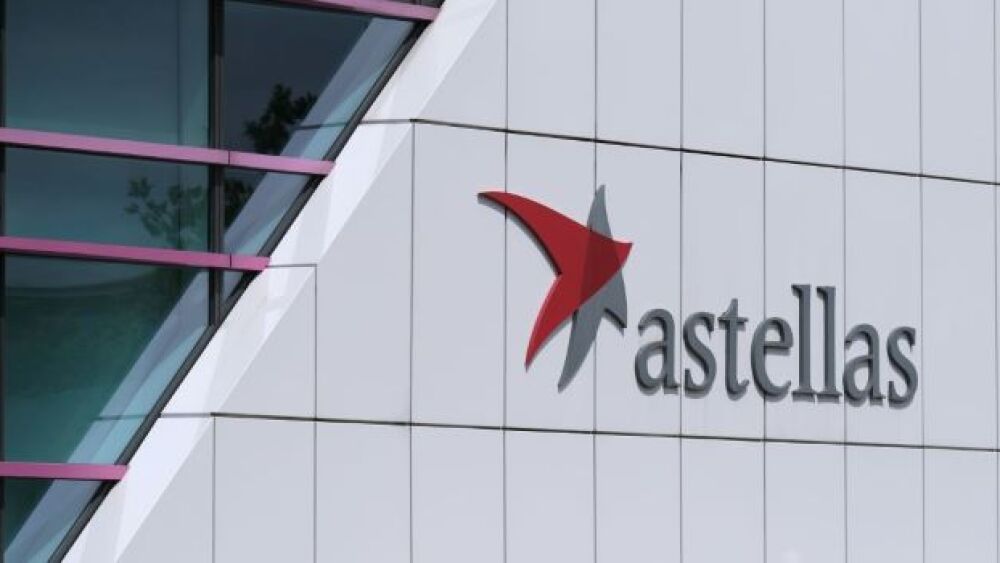Astellas’ zolbetuximab hit the mark in a second late-stage trial in Claudin-18.2-positive gastric cancer.
Yuriko Nakao/Getty Images
Astellas’ zolbetuximab hit the mark in the second late-stage trial in Claudin-18.2 (CLDN18.2)-positive gastric cancer trial in as many months, the Japanese company announced Thursday.
Zolbetuximab in combination with the chemotherapy regimen CAPOX (capecitabine and oxaliplatin) met the primary endpoint of progression-free survival in the Phase III GLOW trial.
GLOW included 507 patients who were randomized to receive zolbetuximab plus CAPOX or placebo plus CAPOX.
The study assessed the combo as a first-line option for patients with advanced CLDN18.2-positive, HER2-negative gastric or gastroesophageal junction (GEJ) adenocarcinoma.
Astellas reported that zolbetuximab, a first-in-class CLDN18.2 targeted chimeric IgG1 monoclonal antibody, showed statistical significance in PFS compared to placebo.
The key secondary endpoint of overall survival was also achieved. While it did not report full trial results, Astellas reported the secondary endpoint showed statistical significance.
The most frequently reported adverse events were nausea and vomiting. Full data from the trial will be presented at a future conference.
Ahsan Arozullah, M.D., SVP and head of development therapeutic areas for Astellas, told BioSpace CLDN18.2 is found in normal gastric cells.
Studies have shown the protein may become more exposed and accessible to targeted antibodies as gastric tumors develop. Data from Astellas’ trials showed 38% of screened patients had CLDN18.2-positive tumors, which Arozullah said supports CLDN18.2 as an emerging biomarker.
Zolbetuximab is designed to bind to CLDN18.2 on the surface of gastric epithelial cells. In preclinical studies, the therapy induced cancer cell death through the activation of two immune system pathways, antibody-dependent cellular cytotoxicity and complement-dependent cytotoxicity.
In November, Astellas reported positive data from the Phase III SPOTLIGHT trial where zolbetuximab also achieved the primary endpoint of PFS, as well as the secondary endpoint of overall survival.
Rather than CAPOX, this study assessed zolbetuximab in combination with mFOLFOX6, a combination of oxaliplatin, leucovorin and fluorouracil.
With data from both the GLOW and SPOTLIGHT trials in hand, Astellas plans to file for regulatory approval of zolbetuximab.
“We are encouraged by the potential of investigational agent zolbetuximab to provide an innovative treatment option for patients with CLDN18.2-positive, HER2-negative, locally advanced unresectable or metastatic gastric or GEJ adenocarcinoma,” Arozullah said.
Gastric cancer is typically diagnosed at an advanced stage. The five-year survival rate for patients with advanced gastric cancer is approximately 6%, Astellas noted in the press release.
Zolbetuximab is also being evaluated in gastroesophageal and pancreatic cancers.
Targeting CLDN18.2
CLDN18.2 is an increasingly popular target in oncology. The protein is highly expressed on the surface of various tumor cells, particularly in gastric cancer. It is estimated CLDN18.2 is expressed in the tumors of 50–80% of gastric cancer patients.
Based on the SPOTLIGHT and GLOW studies, Astellas reported that approximately 38% of trial patients have CLDN18.2-positive tumors.
No therapeutics targeting CLDN18.2 have been approved to date. However, multiple companies are vying to produce the first. Contenders include I-Mab, AstraZeneca, BioNTech and Amgen.
In March, the FDA granted I-Mab’s CLDN18.2 bispecific antibody TJ-CD4B Orphan Drug designation. In April, AstraZeneca acquired rights to Harbour BioMed’s HBM7022, a CLDN18.2 bispecific antibody.





